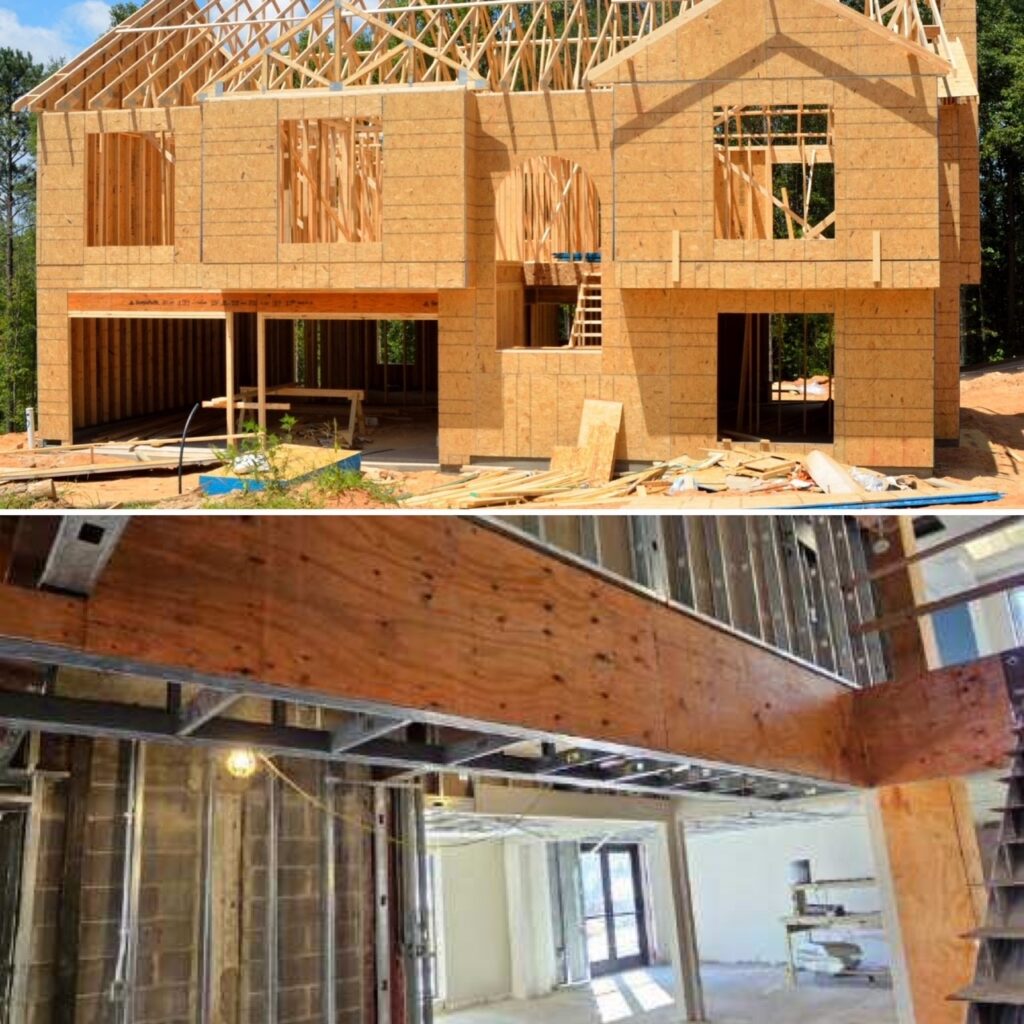The difference between Residential and Commercial Construction
By: CRG Construction
The difference between Residential and Commercial Construction
Residential and commercial construction are two distinct sectors within the construction industry, each with its own unique characteristics and requirements. Here’s a breakdown of the key differences between residential and commercial construction, which could be the basis for a blog post:
1. Purpose and Usage:
- Residential Construction: Involves building and renovating private homes, apartments, and housing complexes where individuals and families reside.
- Commercial Construction: Focuses on constructing buildings and structures for businesses, organizations, and public use, including office buildings, retail stores, hotels, and industrial facilities.
2. Design and Scale:
- Residential Construction: Typically involves smaller-scale projects, personalized design elements, and a focus on aesthetics and comfort for individuals or families.
- Commercial Construction: Involves larger-scale projects with a focus on functionality, space utilization, and compliance with commercial building codes and regulations.
3. Regulations and Codes:
- Residential Construction: Subject to residential building codes, which prioritize safety, energy efficiency, and habitability for homeowners and occupants.
- Commercial Construction: Adheres to more complex and stringent commercial building codes, including fire safety, accessibility, and zoning regulations specific to businesses.
4. Materials and Construction Techniques:
- Residential Construction: Often utilizes a variety of materials for aesthetic appeal, including wood, bricks, and stone. Construction techniques focus on creating a comfortable living space.
- Commercial Construction: Involves the use of durable and cost-effective materials like steel, concrete, and glass. Construction techniques prioritize efficiency, speed, and long-term durability.
5. Project Timeline and Budget:
- Residential Construction: Project timelines can vary widely based on the complexity of the design and customization. Budgets are tailored to the homeowner’s preferences.
- Commercial Construction: Typically has tight deadlines and strict budgets. Delays can have significant financial implications for businesses, making project management crucial.
6. Contractors and Specializations:
- Residential Construction: Involves contractors who specialize in home building, remodeling, and interior design, often catering to individual homeowners.
- Commercial Construction: Requires contractors experienced in managing large teams, coordinating various subcontractors, and handling complex projects that involve specialized spaces like laboratories or commercial kitchens.
7. Liability and Insurance:
- Residential Construction: Liability is generally lower, with homeowners’ insurance covering most incidents. Contractors carry liability insurance to protect clients.
- Commercial Construction: Involves higher liability risks due to the larger number of people involved. Contractors need substantial insurance coverage to handle potential accidents or damages.
By understanding these fundamental differences, clients, contractors, and construction professionals can approach residential and commercial projects with the appropriate knowledge and expertise, ensuring successful outcomes in their respective domains.
Follow the link to join our monthly Newsletter: https://lp.constantcontactpages.com/sl/WpS1tqN
Follow the link to our Projects page: https://crgkc.com/projects-crg-construction/
By: CRG Construction
